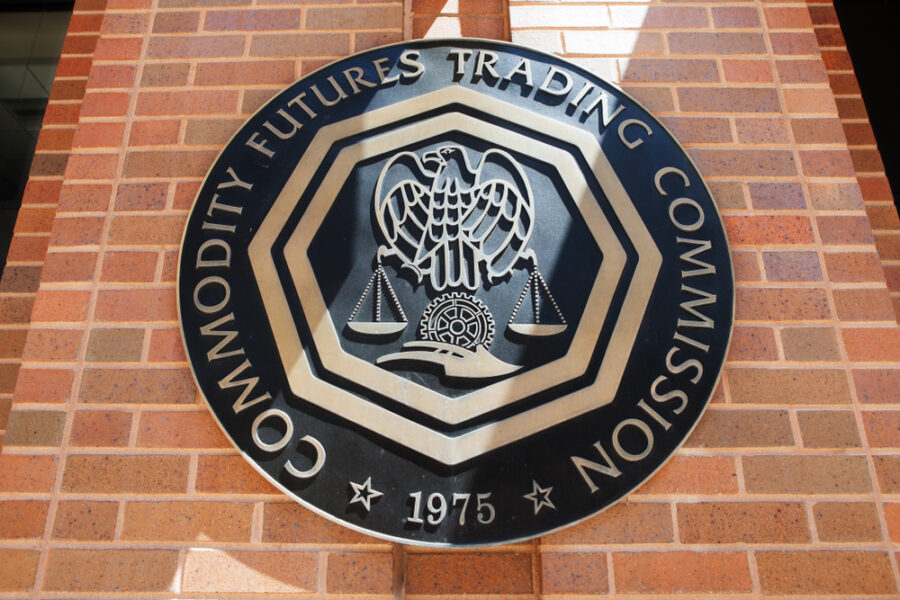Trump nominates crypto regulator Michael Selig to lead Commodity Futures Trading Commission

US President Donald Trump has nominated lawyer and crypto adviser Michael Selig to chair the Commodity Futures Trading Commission.
Selig currently serves as Chief Counsel for the US Securities and Exchange Commission Crypto Task Force and is an adviser to the regulator’s chair Paul Atkins.
If Selig is approved by the Senate he will take the reins of the commodities regulator amid growing controversy around Commodity Futures Trading Commission-regulated prediction markets, and just as it prepares to take a formal role in the regulation of crypto markets.
Bloomberg were first to report news of the nomination, with White House Artificial Intelligence and Crypto Czar David Sacks confirming it via a post on X.
Praising the president’s choice, Sacks said, “As anyone who knows him will attest, @MikeSeligEsq is deeply knowledgeable about financial markets and passionate about modernizing our regulatory approach in order to maintain America’s competitiveness in the digital asset era.”
Also writing on X, Selig said, “I am honored to be nominated by President Trump to serve as the 16th Chairman of the U.S. Commodity Futures Trading Commission. With the President’s leadership, a Great Golden Age for America’s Financial Markets and a Wealth of New Opportunities stand before us.
“I pledge to work tirelessly to facilitate Well-Functioning Commodity Markets, promote Freedom, Competition and Innovation, and help the President make the United States the Crypto Capital of the World.”
Selig’s nomination coincides with new legislation in the form of the GENIUS Act and the CLARITY Act, which aim to establish a regulatory framework for digital assets.
Trump’s latest selection for the role comes after his first nomination, former Commissioner of the Commodity Futures Trading Commission and Kalshi Director Brian Quintez, was heavily challenged by Cameron and Tyler Winklevoss, the twin co-founders of crypto exchange Gemini, who claimed Quintez did not align with the president’s agenda.
Verticals:
Sectors:
Topics:
Dig Deeper
The Backstory
How we got here
President Donald Trump’s move to tap Michael Selig to lead the Commodity Futures Trading Commission lands at a volatile moment for the agency. In recent weeks the CFTC has greenlit a high-profile prediction market’s return to the United States, faced pushback from state gaming regulators, and been drawn into a licensing fight tied to sports markets and retail-facing derivatives. The crosscurrents speak to a regulator being pulled into the center of two fast-converging arenas: prediction markets and crypto.
Outgoing CFTC Commissioner Kristin Johnson used her valedictory speech to warn that prediction markets and certain crypto venues are drawing “unprecedented” retail participation without commensurate safeguards. She said the sector has “too few guardrails and too little visibility,” urging tighter controls on leverage, custody and incentives. Her critique, delivered as the CFTC granted a pathway for Polymarket to resume U.S. operations, framed the consumer protection stakes and the political scrutiny the next chair will inherit. Read more about Johnson’s warning in her Brookings send-off and its implications for prediction markets.
Prediction markets’ rapid reentry
The immediate flashpoint is the CFTC’s no-action relief that allowed Polymarket to return stateside after acquiring a registered exchange and clearing house. The decision, which followed a three-year absence from the U.S., has energized a sector that some investors say could rival equity markets one day. Our coverage of the decision outlines the mechanics and backlash: CFTC gives Polymarket go-ahead for U.S. launch.
Polymarket’s strategy hinged on buying its way into the regulated perimeter by acquiring QCEX for $112 million, a maneuver Johnson criticized as a “rent or buy” approach to licensure. The CFTC subsequently detailed the QCX arrangement in public materials, including a press release describing QCX approvals and a filing on operational matters tied to event contracts. Meanwhile, the platform has courted political allies; in June it announced new backers and governance ties, including Donald Trump Jr., via a PR release on a strategic investment and advisory board additions. Those moves underscore how prediction venues are building capital, compliance and clout ahead of the 2026 midterms and a broader slate of tradable news events.
The CFTC’s stance is not without precedent. The agency has at times invited experimentation, and at others balked. In 2021, an exchange backed away from listing NFL event futures as regulators prepared to object, a turn documented in the Wall Street Journal’s account of the withdrawal of NFL contracts as a regulatory rejection loomed. That mixed record is now being tested again.
State-federal friction over “sports contracts”
As federal permissions expand, some states argue the CFTC is enabling de facto sports betting outside of their licensing regimes. Arizona’s top gaming regulator, Jackie Johnson, pressed the case bluntly in a letter to Acting Chair Caroline Pham, saying prediction contracts on sports are indistinguishable from wagers and violate state law. The letter followed Arizona cease-and-desist notices to several firms and mirrored actions in other states. For details, see Arizona’s critique of CFTC handling of Kalshi-style markets.
This rift highlights a governance dilemma the next CFTC chair must navigate: where federally supervised event contracts end and state-regulated gambling begins. The Commodity Exchange Act prohibits contracts that are contrary to the public interest, and the CFTC has historically scrutinized election and sports markets under that lens. But with platforms offering contracts on everything from macroeconomic releases to game outcomes, the practical line-drawing has gotten harder—especially as retail interest grows.
Licensing bottlenecks and the fight over market access
The competition to serve retail demand is spilling into the courts. Fantasy operator Sleeper Markets sued the CFTC and Pham, alleging the agency quietly blocked the National Futures Association from approving its futures commission merchant application while a rival won clearance. Sleeper says the alleged interference distorts competition and undermines the transparency the market needs. The complaint, filed in Washington, is summarized here: Sleeper Markets sues CFTC over license delay.
The case matters beyond one applicant. If the court forces clearer timelines or disclosures on intermediary approvals, the decision could accelerate or reorder access for firms pursuing retail-facing event markets. That includes prediction venues, fantasy hybrids and crypto-native platforms seeking to intermediate positions under existing derivatives law. It also raises questions about how the CFTC triages applicants in a crowded queue and what standards it applies when products blur lines with state-regulated gambling.
Sports exchanges renew their bid
Amid the controversy, a familiar name is back at the CFTC’s doorstep. RSBIX, working with UK-licensed exchange Matchbook, has applied to list sports event contracts and to be designated as a contract market. The company previously teamed with Eris Exchange in 2020 on an NFL futures proposal that ultimately was withdrawn after opposition from the NFL and the American Gaming Association and amid regulator scrutiny. Our report on the new filing is here: RSBIX applies for sports event contracts.
Regulatory breadcrumbs around the application are now public. The CFTC’s industry filings page lists the submission as pending, while related operational materials are accessible in the agency’s document archive. Trade press first flagged the move; see VegasSlotsOnline’s early report on the RSBIX bid. Whether the CFTC entertains sports outcomes at scale—or insists on narrow, hedging-oriented event markets—will shape how quickly capital and liquidity concentrate in this corner of finance.
Crypto ruleset still unsettled
All of this unfolds as the agency inches toward a larger role in crypto markets alongside the Securities and Exchange Commission. The two regulators issued a joint statement on spot-crypto oversight that sketched out coordination but left key jurisdictional questions unresolved. Johnson flagged that uncertainty in her farewell and argued that gaps in retail protections that plagued prior crypto crises risk repeating in prediction markets without firmer rules. Her cautionary frame, detailed in our coverage of her departure, sets a bar the next chair will be judged against.
The stakes are immediate. If prediction venues continue to scale, the CFTC’s decisions on listing standards, intermediary licensing, market integrity and state preemption will influence whether event contracts remain a niche tool or become a mainstream, retail-heavy asset class. As one platform gains federal breathing room and others test the boundaries through applications and lawsuits, the chair’s agenda will be measured by how clearly it draws the line between innovation and gaming—and whether the agency can protect retail traders without smothering a fast-evolving market.








